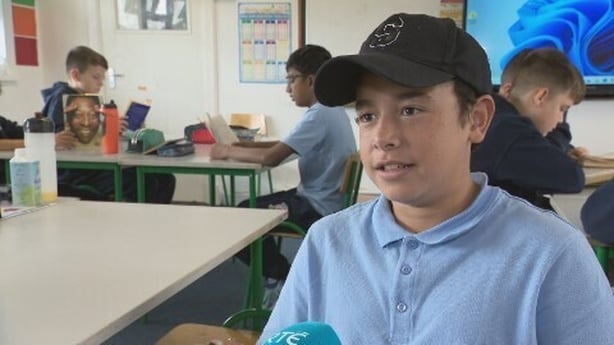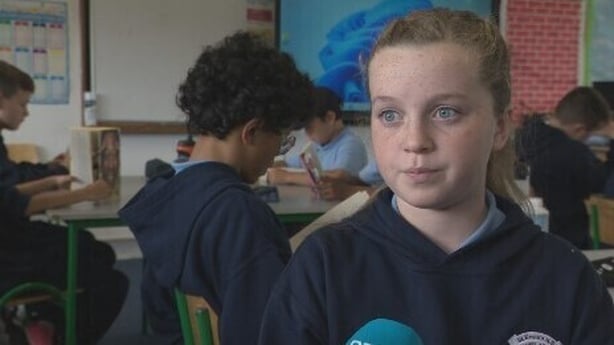A quarter of primary school children have been upset by harmful content they encounter online.
This includes scams, horror and sexual material, according to new figures published by CyberSafeKids.
The online safety charity's annual Trends and Usage Report 'Left To Their Own Devices' surveyed over 7,000 children in the academic year 2023-24.
For 8-12 year olds, feeling upset over online content most commonly occurred on YouTube (37%) and Roblox (23%), even though Roblox is widely perceived as a child-friendly social gaming environment.
For secondary school children (aged 12-14), Snapchat (41%) and TikTok (30%) were identified as the most common platforms where these negative experiences occur.
CyberSafeKids CEO Alex Cooney said: "Our report shows the vital need for online safety education in schools.
"Children are under-prepared and ill-equipped to be online."
She added: "Algorithms that serve up often inappropriate content are hugely problematic for children.
"Our data shows how popular social gaming environments such as Roblox are with young children, yet they fly under the radar for regulation requirements.
"We call on the Government to urgently also address this serious gap to ensure positive experiences for the children and young people using these services."
The study found that 42% of 8-12 year olds, and 62% of 12-14 year olds do not talk to their parents about their online activity.
It also reported that parents are even less involved in their children's online lives than in previous years: 77% of 8-12 year olds say their parents cannot see what they are doing online and 83% can use devices in their bedrooms.
Less than half (43%) of primary school children reported having 'mostly positive' online experiences in the last year. YouTube (75%) WhatsApp (41%), Roblox (40%), Snapchat (36%) and TikTok (33%) are the most popular platforms for this age group.
Almost 65% were contacted by a stranger during an online game. 55% of children aged eight to 12 did not tell a parent when bothered, confused or upset by harmful content or unsolicited contact, rising to 63% for 12-14 year olds.
The vast majority - 94% - of eight to 12 year olds already have their own smart device with tablets (59%), gaming consoles (57%) and smartphones (49%) the three most popular devices respectively in this age group.
Meanwhile 82% of 8-12 year olds already have their own social media or instant messaging account, regardless of a minimum age restriction of 13 on most popular platforms.
A Roblox spokesperson said that safety and civility are foundational to its platform and that it has a robust set of proactive and preventative safety measures specifically designed to protect younger users.
"Roblox is also one of the only technology platforms with a dedicated Civility initiative, with a mission to empower people to navigate the online world with civility and confidence," the spokesperson said.
"A key pillar of this work is creating actionable resources driven by evidence-based data partnering with global experts in the areas of online safety, child development, mental health, and media literacy."
Children facing 'irrepressible firehose of content'
Principal of St Kevin's School, Sallynoggin in south Dublin, Barry O'Leary said the findings tally with "our experience in school of the ever-growing consequence of the 'online childhood', with constantly accessible devices and gaming consoles that are proving too powerful for younger people.
"They are subject to an irrepressible firehose of content - often addictive, sometimes damaging - and we seem to have no reasonable expectation that digital service providers should ensure safe or age-appropriate experiences - and this is causing sleep deprivation, anxiety and addiction."
Sixth class pupils at St Kevin's said they are conscious of the risks they face when using the internet.
"I'd be very aware of dangers online, things like bad people and hackers," said Amy Scully.
Stephen O'Connor said he often comes across strangers when he is gaming online.

"There are a lot of people online that could be saying something bad so I put myself on mute and continue with the game, I ignore them and just play," he said.
Lily Higgins said she is aware of being safe online.

"My mom has a parental control app so she can monitor all of my moves," said Lily.
We need your consent to load this rte-player contentWe use rte-player to manage extra content that can set cookies on your device and collect data about your activity. Please review their details and accept them to load the content.Manage Preferences

